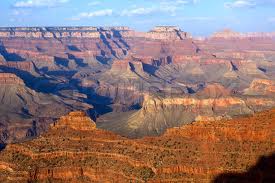Hydroclimate Variability and Change in the Prairie Pothole Region, the ‘‘Duck Factory’’ of North America - PDF The Prairie Pothole Region (PPR) of the Northern Great Plains is a vital ecosystem responsible each year for producing 50-80% of new recruits to the North American duck population. Climate variability and change can impact the hydrology and ecology of the region with implications for waterfowl populations. The historical relationship between PPR wetlands, duck populations, and seasonal hydroclimate are explored. Model experiments from the Coupled Model Intercomparison Project 5 are used to determine whether a recent wetting trend is due to natural variability or changing climate and how PPR hydroclimate will change in the future. Year-to-year variations in May duck populations, pond numbers and Palmer Drought Severity Index are well correlated over past decades. Pond and duck numbers tend to increase in spring following La Niña events, but the correlation is not strong. Model simulations suggest that the strengthening of the precipitation gradient across the PPR over the past century is predominantly due to natural variability and therefore could reverse. Model projections of future climate indicate precipitation will increase across the PPR in all seasons except summer, but this gain for surface moisture is largely offset by increased evapotranspiration due to higher temperatures and increased atmospheric evaporative demand. In summer, the combined effects of warming and precipitation changes indicate seasonal surface drying in the future. The presented hydroclimate analyses produce pontential inputs to ecological and hydrological simulations of PPR wetlands to inform risk analysis of how this North American waterfowl habitat will evolve in the future, providing guidance to land managers facing conservation decisions. REFERENCE Ballard, T., R. Seager, J. Smerdon, B. Cook, A.J. Ray, B. Rajagopalan, Y. Kushnir, J. Nakamura and N. Henderson, 2014: Hydroclimate Variability and Change in the Prairie Pothole Region, the “Duck Factory” of North America. Earth Interactions, V18, N14, p 1-28. |
 EASM2: LINKING NEAR-TERM FUTURE CHANGES IN WEATHER AND HYDROCLIMATE IN WESTERN NORTH AMERICA TO ADAPTATION FOR ECOSYSTEM AND WATER MANAGEMENT EASM2: LINKING NEAR-TERM FUTURE CHANGES IN WEATHER AND HYDROCLIMATE IN WESTERN NORTH AMERICA TO ADAPTATION FOR ECOSYSTEM AND WATER MANAGEMENT | |
| Lamont-Doherty Earth Observatory of Columbia University 61 Route 9W Palisades, NY 10964
| |
|
| |